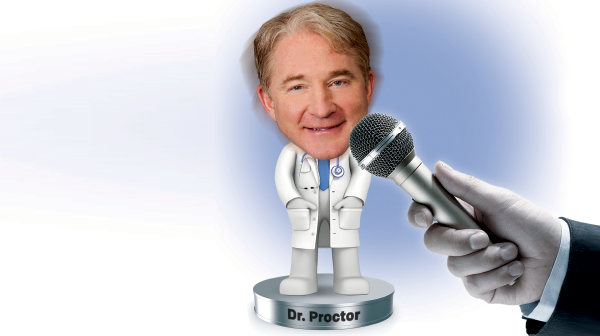
VF: It’s wonderful that you’ve done this, John. In my own case, I knew John Wiegenstein, and it seems appropriate that we do something in his honor. What is it about the work and the mission of the EMF that resonates with you in a way that you wanted to make this request in your estate planning?
Explore This Issue
ACEP Now: Vol 34 – No 09 – September 2015JP: I’m a fan of the EMRAP [Emergency Medicine: Reviews and Perspectives podcast] series. (I have no financial interest in EMRAP.) In EMRAP, they have a regular paper chase and other segments that emphasize the lack of hard medical evidence to support many of our management treatment decisions in the emergency department in the course of a shift. EMF’s financial strength is growing by leaps and bounds, as you well know as a leader in EMF. Its growing financial strength positions it to fund research making important impacts on evidence-based emergency medicine practice and quality going forward in the near term and the far term. I encourage every emergency physician to join you and me and other Wiegenstein Society members in the inclusion of the EMF in estate planning.
“Most important, emergency medicine provides me the opportunity to make a difference in people’s lives and in my community. It makes perfect sense that I plan a contribution to the EMF upon my death.” —Dr. John Proctor
VF: We’ve built an endowment over the last few years, and you’ve been instrumental in that. As we start to have some return from the legacy society, can you think of some topics or items of research or education that you think might be appropriate for these funds to be used for?
JP: Early in my career as an academic emergency physician, I was involved in some limited clinical research, but I want to point out I am not a researcher. The areas that I have seen EMF already begin funding are around what quality really means in emergency medicine. Operational efficiency and patient experience of care—what do those really mean to the quality of care that we provide? Where is that right balance between pure quality, as we view it and believe it to be, and those other measures that outside organizations label as quality? There’s a ton of work that can be done in those areas.
VF: What are one or two big takeaways from your time on the EMF Board?
JP: First, early on as a Board member of EMF, I was surprised to see the amount of research that had been performed. I felt like we weren’t broadcasting the work that we were doing well enough. The addition of Tanya Downing as our Director of Foundation Development has made big improvements in how public we are about the work that’s being accomplished. The second thing that I learned is that there’s a significant difference between “purist” research and research around the topics that I mentioned before, like research around workforce and other topics that matter in the operational world of emergency medicine. EMF is positioned to strike as close as possible to the perfect balance between funding both of those.
Pages: 1 2 3 | Single Page


No Responses to “Dr. John Proctor Explains Why He Joined the Wiegenstein Society, and Why You Should Too”